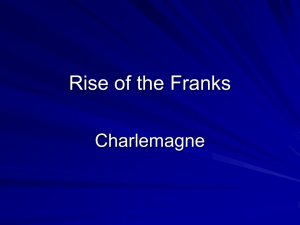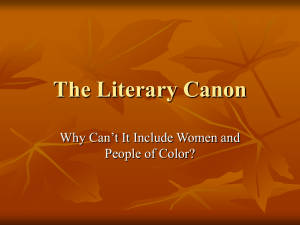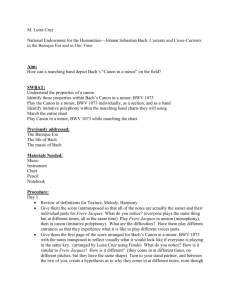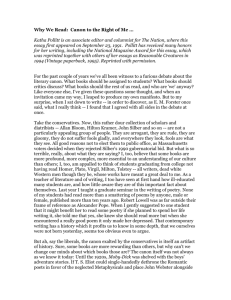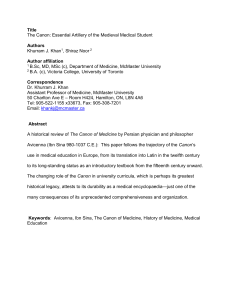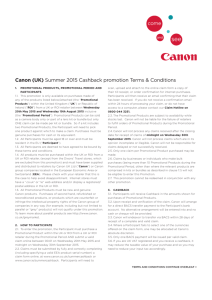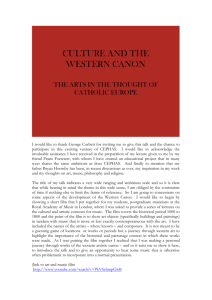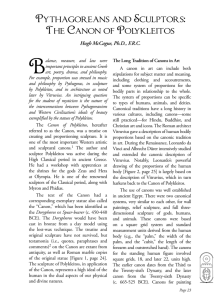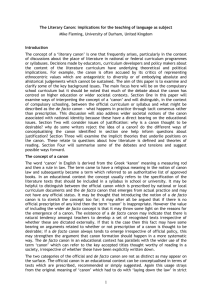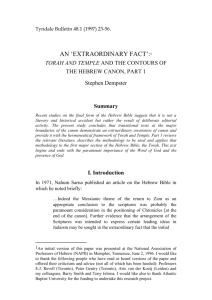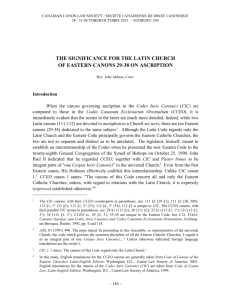a problem of connotation in analysis of the Russian history
advertisement
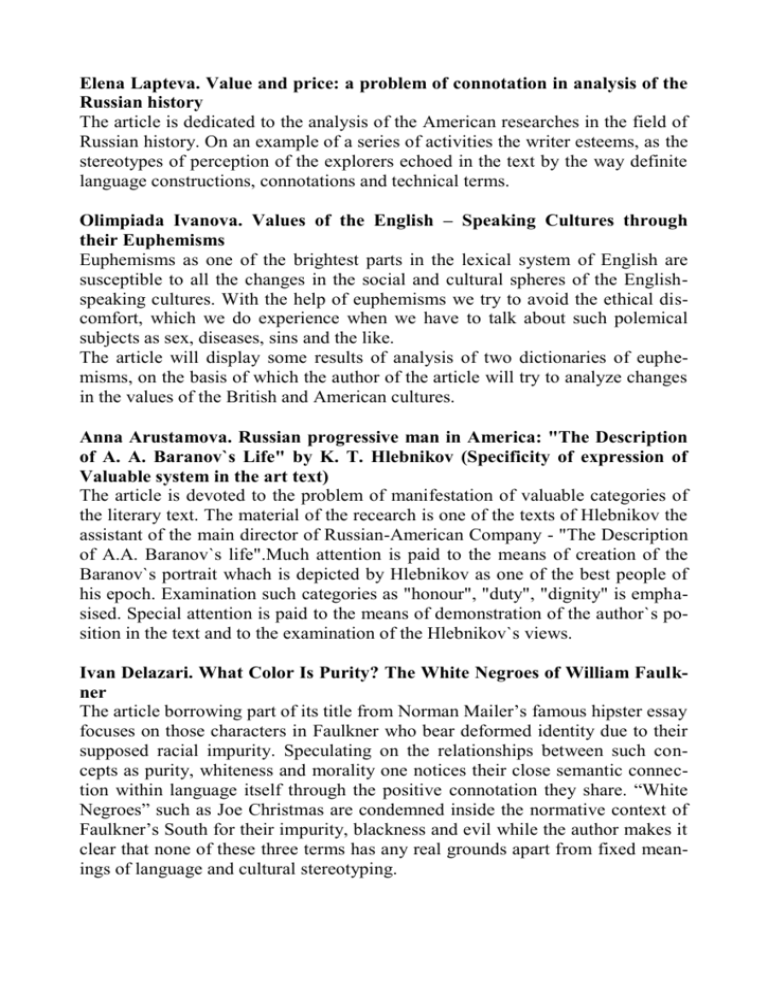
Elena Lapteva. Value and price: a problem of connotation in analysis of the Russian history The article is dedicated to the analysis of the American researches in the field of Russian history. On an example of a series of activities the writer esteems, as the stereotypes of perception of the explorers echoed in the text by the way definite language constructions, connotations and technical terms. Olimpiada Ivanova. Values of the English – Speaking Cultures through their Euphemisms Euphemisms as one of the brightest parts in the lexical system of English are susceptible to all the changes in the social and cultural spheres of the Englishspeaking cultures. With the help of euphemisms we try to avoid the ethical discomfort, which we do experience when we have to talk about such polemical subjects as sex, diseases, sins and the like. The article will display some results of analysis of two dictionaries of euphemisms, on the basis of which the author of the article will try to analyze changes in the values of the British and American cultures. Anna Arustamova. Russian progressive man in America: "The Description of A. A. Baranov`s Life" by K. T. Hlebnikov (Specificity of expression of Valuable system in the art text) The article is devoted to the problem of manifestation of valuable categories of the literary text. The material of the recearch is one of the texts of Hlebnikov the assistant of the main director of Russian-American Company - "The Description of A.A. Baranov`s life".Much attention is paid to the means of creation of the Baranov`s portrait whach is depicted by Hlebnikov as one of the best people of his epoch. Examination such categories as "honour", "duty", "dignity" is emphasised. Special attention is paid to the means of demonstration of the author`s position in the text and to the examination of the Hlebnikov`s views. Ivan Delazari. What Color Is Purity? The White Negroes of William Faulkner The article borrowing part of its title from Norman Mailer’s famous hipster essay focuses on those characters in Faulkner who bear deformed identity due to their supposed racial impurity. Speculating on the relationships between such concepts as purity, whiteness and morality one notices their close semantic connection within language itself through the positive connotation they share. “White Negroes” such as Joe Christmas are condemned inside the normative context of Faulkner’s South for their impurity, blackness and evil while the author makes it clear that none of these three terms has any real grounds apart from fixed meanings of language and cultural stereotyping. Maria Sukhotina. Canonical text as means of cultural legitimization In the paper I argue that canonical texts can be, and often are used as means of cultural legitimization. One example of it is the politics of book reviewing as represented in the New York Review of Books. Most reviewers tend to find a classical analog to any new work featured in the NYR. By comparing a new text / cultural practice with an older, “canonized” text/ practice, the NYR critics make it share some of the cultural capital acquired by that older venerable piece. Thus a comparison justifies the inclusion of a new work into the NYR’s own canon. Ekaterina Kulik. Moralist as Terrorist, Writer as Historian (Don DeLillo and Paul Auster about the purpose of contemporary literature) This essay is about the modification of writer’s function in modern culture, based on the example of the novels of the two contemporary American novelists: Paul Auster and Don DeLillo. They believe that in the end of the XX century the traditional dichotomy “writer-moralist” vs. “writer-historian” is becoming less important for the present-day cultural reality, as “writer-moralist” that was always trying to influence the inner life of man is giving way to the more powerful “teachers of morality” — terrorists, whereas the position of “writer-historian” remains as stable as it used to be before. Barbara Herrnstein Smith. Contingences of Values In article claims that we should not seek objectivism in literary criticism for evaluation is a social act and always depends on the total economy of our existence. She notes that critics in recent years preferred to focus on theories of interpretation and neglected the matter of evaluation because of a general split between philological scholarship and criticism: the former was seen as responsible and elevated (for it pretended to deal with facts) and the latter as insubstantial (for it was based on judgments). Thus, low status of evaluative criticism prevented scholars from serious study of the very nature of value its continuity. Anna Bogdanova The article is focused on the concept of Orientalism elaborated by Edward Said and its relation to the literary canon treated as an effective political means. False description of other cultures, offered and reproduced by European literature, served politics of imperialism while its pretensions to universality helped to spread conceptual reduction. Examining ideological impulses of the Western canon Said points to its ambivalence: it reproduces values of European imperialism but on the other hand it contains some currents which undermine those values and help non-Europeans to find their identity. Thus, the canon demands a new way of reading contrapuntal one which would be based on multicultural dialogue. Serguei Makeev. The Value of Happiness: An Approach to the Economy of Komu na Rusi Zit’ Horosho The close relation between Nekrasov as a participant in a market of commodities and Nekrasov the poet is reflected in how Nekrasov poses the problem of happiness in his unfinished poem Komu na Rusi zit’ horosho. Employing symbol of a village fair (sel’skaja jarmarka) where his characters encounter potential sellers of happiness he presents happiness as a kind of commodity different types of which are offered in the market and can be chosen and made ones own. And the incompleteness of Komu na Rusi Zit’ Horosho is a result of the collapse of “economy” of the text, impossibility for Nekrasov to find equilibrium between demand and supply and to define market value of happiness. Mikhail Epshtein. Improvisational Community The article focuses on collective improvisations as a mode of intellectual activity which brings together the values of creativity and communication. The goal of collective improvisation is to encourage interactions among different disciplinary perspectives, life experiences, and worldviews. It can also be identified with the task Richard Rorty has set for thinkers of the future: "They would be all-purpose intellectuals who were ready to offer a view on pretty much anything, in the hope of making it hang together with everything else." Improvisations might be thought of as metaphysical "assaults" on ordinary things. These experiments in creative communication were conducted in Moscow in the 1980s and then transplanted into some US universities in the 1990s. Paul Lauter. Canon Theory and Emergent Practice The essay traces three forms of conflict with respect to the question of the canon: first, between conservatives who wish to retain traditional cultural canons and those who want to introduce female and minority voices. Second, between advocates of various forms of "theory" and those with more of a classroom focus about which texts might provide useful and significant objects of study. And third, among advocates of canon change between those who insist on the importance of minority and female voices speaking for themselves and those who believe that the presentations of teachers and critics can adequately "represent" cultural differences. The essay then goes on to point to certain promising lines of development in the study of literary canons, particularly the "implications of the material and institutional conditions of authorship and literary study" for canon formation, and the functions of particular canons at particular historical junctures in establishing and maintaining social and cultural boundaries and power relationships. Vladimir Karassik. Cultural Axioms in Language Awareness The article is devoted to values and norms of behavior which make basic patterns of the culture, are taken axiomatically as self-evident and are fixed in cultural concepts multidimensional mental entities. These concepts are represented in word meanings, communicative stereotypes and common knowledge shared by the members of the same community. They may be analyzed from the points of view of their perceptive, notional and evaluative content. Certain concepts are ethno-specific in the sense that they exist only in particular cultures and shape the values of the corresponding cultures. To prove it the concept challenge is analyzed and it is shown in the paper that this concept expresses the key values of American culture Freedom, Equality, and Energy. Steaven Mailloux. Making Comparisons: First Contact, Ethnocentrism, and Cross-Cultural Communication "Making Comparisons" examines questions about transcultural comparisons related to attempts at cross-cultural communication. It uses Richard Rorty's neopragmatism to describe the interpretation and evaluation of alien practices and to provide a theoretical account of intercultural contact. In particular, the essay explores the problem of hermeneutic and political ethnocentrisms involved in making comparisons within and across different cultures.






